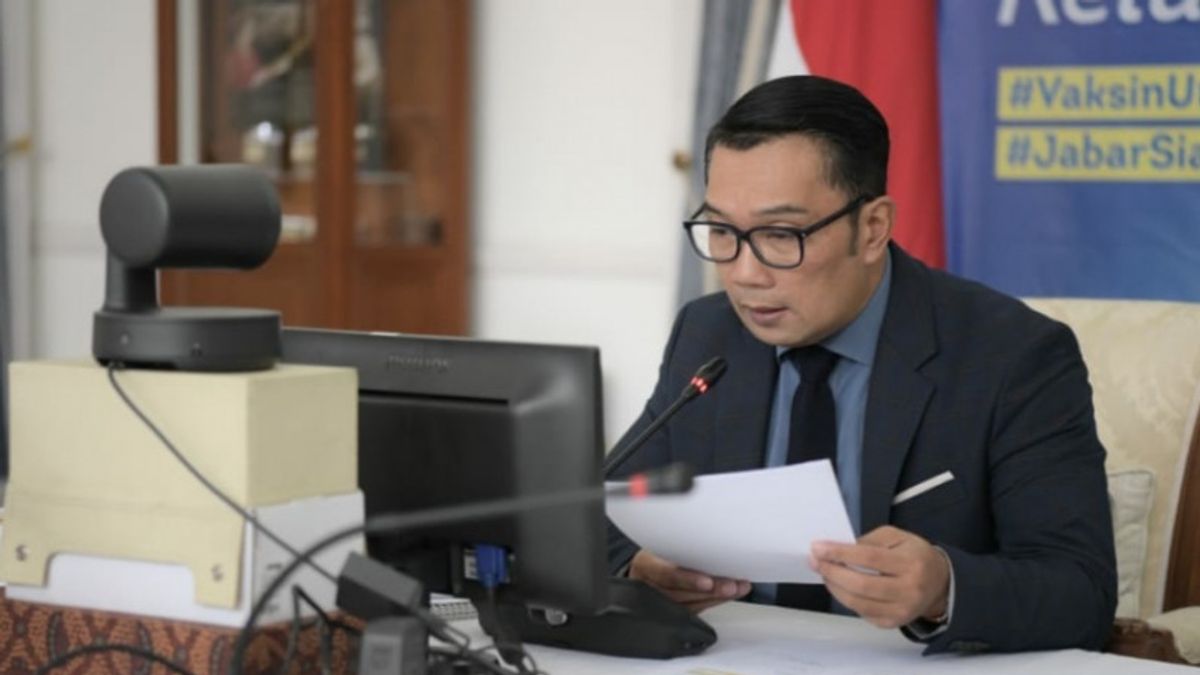BANDUNG - West Java (Jabar) Governor M Ridwan Kamil or Kang Emil said the implementation of the Emergency Community Activity Restrictions (PPKM) in West Java was still not satisfactory. Especially in terms of suppressing people's mobility so that in the next few days, there will be sanctions, including in industrial areas.
"So firstly, the implementation of the Emergency PPKM has not been satisfactory, the target for the reduction is 30 percent and currently it is still at 17 percent. There will still be coordination, there will be a lot of isolation and action, including tiping (minor crimes) on the road to reduce mobility," he said. Kang Emil, in a virtual press conference in Bandung quoted by Antara, Tuesday, July 6.
Kang Emil said that his party together with the Police and the TNI had coordinated to increase roadblocks because one of the reasons for community mobility was still high because there was a misunderstanding of the critical and essential sectors.
This is immediately evaluated and at the same time intensifies education on the meaning of which activities are allowed during emergency PPKM.
"We will also take action against those who do not carry out WFH 100 percent, including industries that are still stubborn, there are two things that have been identified, one that does not have a COVID-19 task force, so that many positive employees are only sent home without being taken care of, causing family clusters," he said. .
According to Kang Emil, companies or industry players that remain open even though they are not included in the critical and essential industry category, a team from the police will also raid industrial locations.
"There are still many violations in these two days. Discipline is still low," he continued.
Kang Emil has also required hospitals to increase capacity for COVID-19 patients by 60 percent of the total available beds and the addition of Human Resources (HR) to be overcome by recruiting volunteers.
Prior to the Emergency PPKM, the hospital's capacity for COVID-19 patients was 20 to 30 percent and when the number of cases soared, the capacity was increased so that services could be maximized.
"I have said earlier, this week, the West Java Provincial Government requires hospitals to increase capacity for COVID-19 from 40 percent to 60 percent," he said.
In addition, buildings outside health facilities must be activated, such as state buildings, apartment hotels to be rented for the recovery of COVID-19 patients.
He gave the example of the Asrilia Hotel in Bandung City or the Grand Pangestu in Karawang, which have implemented this policy.
"Including education center buildings, ministries or institutions scattered in West Java, we ask to use them," he said.
The English, Chinese, Japanese, Arabic, and French versions are automatically generated by the AI. So there may still be inaccuracies in translating, please always see Indonesian as our main language. (system supported by DigitalSiber.id)








